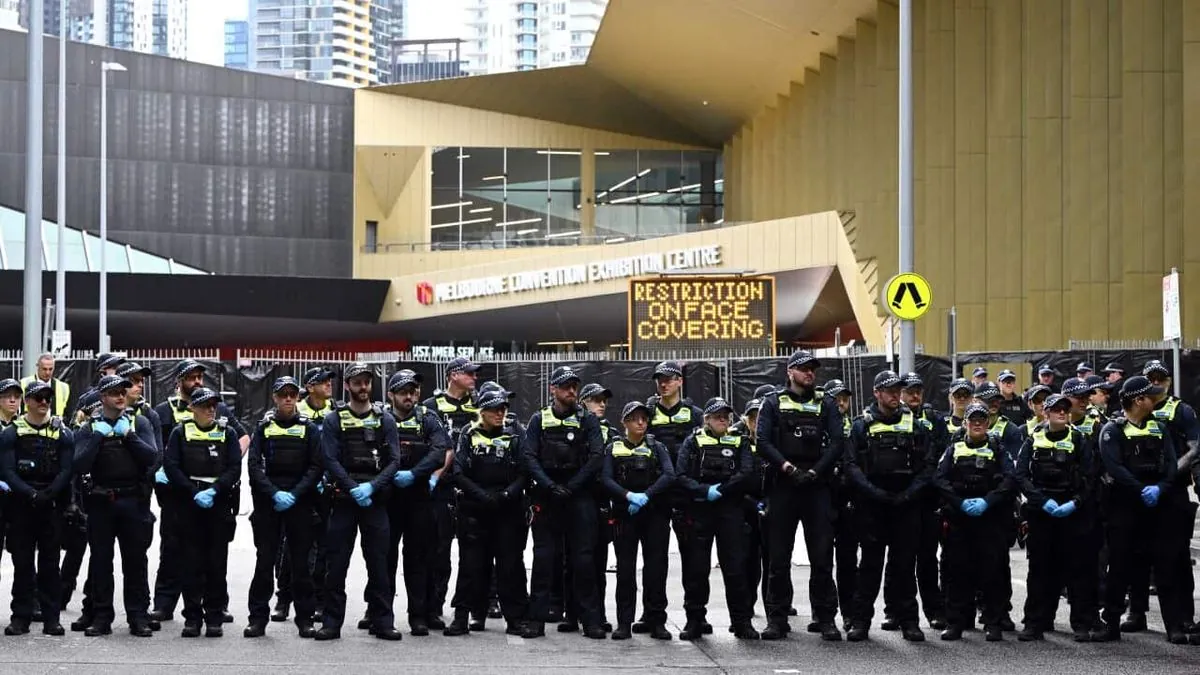On September 11, 2024, Melbourne, the capital of Victoria, Australia, witnessed a significant anti-war demonstration outside a prominent defence industry event. The biennial Land Forces International Land Defence Exposition, a major showcase for the Asia-Pacific region's defence sector, became the focal point of intense protest activity.
Hundreds of demonstrators gathered near the exhibition venue, expressing their opposition to the arms trade and military spending. The protest highlighted the ongoing debate surrounding the defence industry's role in the economy and its ethical implications. Australia's defence sector contributes substantially to the nation's financial landscape, yet it continues to face criticism from peace activists.
The demonstration took an unexpected turn as protesters attempted to breach police barricades. Law enforcement, including riot squad officers, intervened to maintain order. The situation escalated when one protester climbed atop a stationary truck, further intensifying the confrontation.
Authorities resorted to using capsicum spray, commonly known as pepper spray, to control parts of the crowd. This crowd control measure, while effective, has been a subject of controversy and scrutiny in protest situations worldwide. The use of such tactics often raises questions about the balance between maintaining public order and respecting the right to peaceful protest, which is protected under Australian law.
"The air was thick with tension. You could hear the chants echoing through the streets, and then suddenly, there was chaos as the police moved in."
The protesters, many of whom were chanting pro-Palestine slogans through loudspeakers, directed their ire at conference delegates. This aspect of the demonstration reflects the growing momentum of pro-Palestine activism globally and underscores Melbourne's diverse population, which includes a significant Palestinian community.
As a result of the unrest, local authorities were compelled to close several roads and advise motorists to avoid specific areas of the city. Such traffic disruptions are not uncommon during large-scale protests in major urban centers like Melbourne, known for its vibrant activist culture.
This incident is reminiscent of Australia's long history of anti-war protests, which gained prominence during the Vietnam War era. The Melbourne demonstration serves as a contemporary example of the ongoing tension between defence industry interests and anti-war sentiments.
The event also highlights the role of social media in modern protest movements. Platforms have become instrumental in organizing demonstrations and documenting events in real-time, allowing for rapid dissemination of information and mobilization of supporters.
As the situation unfolded, it became clear that the defence exhibition had inadvertently sparked a broader discussion about Australia's role in the global arms trade and its stance on international conflicts. The protest in Melbourne serves as a microcosm of the larger, ongoing debate surrounding military spending, foreign policy, and the pursuit of peace in an increasingly complex geopolitical landscape.
